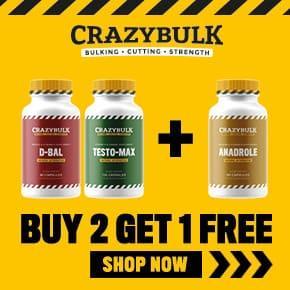You wake up feeling more tired than usual. Your workouts don’t hit like they used to and your energy just isn’t there. Maybe you’ve heard friends talk about testosterone replacement therapy and you start to wonder if it could be the answer. TRT promises a boost in vitality but it’s not a simple fix. Before you jump in it’s smart to weigh the pros and cons of TRT so you know exactly what you’re signing up for.
What Is TRT?
TRT stands for testosterone replacement therapy. Doctors use it to help people with low testosterone. Your body makes less testosterone as you get older. Lifting heavy, hitting hard workouts, or using some supplements can also drop your levels. Ever wonder why your strength stalls or workouts seem harder? Low testosterone could be why.
TRT uses a shot, patch, or gel to put extra testosterone back in your body. People who use TRT often notice more muscle, better recovery, and sharper focus in the gym. Ever hear your friends say, “I feel like I’m lifting like I used to”? That’s what TRT can feel like when it works.
Testosterone does more than help grow muscle. It helps you bounce back faster after big sets, keeps your bones strong, and even helps your mood. Remember the last time you felt pumped after a good lift? High testosterone levels often help with that.
You might hear people at your gym talk about TRT as a shortcut or a secret weapon. Is it for everyone? TRT isn’t magic and doesn’t work for everyone the same way. Some reach out for it after lots of blood tests and talks with their doctor. Others back off when they learn about side effects.
Big question: Would adding more testosterone help you reach your goals? Or would it just be another step in your muscle-building journey? As you learn about TRT, think about your own training, goals, and how you want to feel every day.
Key Benefits of TRT
Testosterone Replacement Therapy gives your workouts and recovery an extra edge when your natural testosterone drops. For many lifters, TRT means faster gains, steady energy, and a strong comeback from fatigue. Let’s break down how TRT can help you feel and perform at your best.
Improved Energy and Mood
You’ll feel more awake and ready to move throughout your day. Fatigue makes even simple routines tough, but TRT boosts your energy so you power through the hardest lifts. Many guys notice they feel less moody and more focused. If you’ve ever felt snappy or down without a reason, you’re not alone—TRT often helps level out those moods so you come to the gym clear-headed and motivated.
Enhanced Muscle Mass and Strength
Getting bigger and stronger isn’t just about training hard. Low testosterone can slow down muscle growth, no matter how much protein you eat or how smart you lift. With TRT, you gain back lean muscle mass and lose more fat. Think about the last time you hit a plateau—TRT helps break that wall, so you get stronger lifts, whether you’re squatting, benching, or pulling heavy. Even your bones get stronger, which supports bigger loads and reduces your chance of injuries.
Better Sexual Health
Loss of drive? Slower recovery in and out of the gym? Low testosterone affects your sex life too. TRT fixes that by boosting libido and sexual performance. More testosterone means better blood flow, so erections become firmer and more reliable. Many notice they feel “like themselves” again, with confidence that shows up everywhere—not just in the gym.
Testosterone lets you hit life’s big moments with energy and power. For serious muscle-builders, these benefits make every set and rep count extra.
Potential Drawbacks of TRT
TRT can help you push past workout slumps and boost your mood. Still, there are some downsides that matter, especially if you’re chasing bigger gains or faster recovery. Let’s look at what can come with TRT, so you know both sides before jumping in.
Side Effects and Health Risks
Some men feel new issues after they start testosterone therapy. These side effects can take you by surprise even if you feel strong at the gym. You might see acne pop up, or your skin might get oily fast. Swelling can show up in your ankles. A few guys deal with breast swelling, which can feel strange or worrying.
Sleep can turn tricky too. If you already snore or have sleep apnea, TRT might make those problems worse. Your red blood cell count could go up, increasing your risk of a blood clot. That risk is even bigger if you use other muscle-building supplements.
If you plan to start a family, TRT can often lower your sperm count. Some users see their testicles shrink, which can shake your confidence. There’s also a risk if you have prostate problems—TRT can make them worse, especially if you have prostate cancer.
Long-Term Commitment
Most guys who start TRT keep using it for years. As soon as you stop, low T symptoms usually return fast—like tiredness, weak recovery, and poor focus at the gym. If you want your size and strength gains to stick, you’ll need to keep up with treatments. That’s a big choice for anyone who just wants to feel better during workouts or daily life.
Cost and Accessibility
The price for TRT isn’t the same for everyone. Some pay less if they have good insurance, while others pay out of pocket. Injections often cost less, but many choose gels or patches for fewer side effects. Not everyone can get TRT quickly. Some states or areas don’t have clinics close by, and some insurance plans won’t cover it. That adds stress when you want results without very costly.
| Side Effect or Risk | Examples | Bodybuilding Impact |
|---|---|---|
| Acne | Oily skin, breakouts | Discomfort, confidence dip |
| Swelling | Ankles, breast tissue | Distraction during lifts |
| Blood Clot Risk | High red blood cell count | Serious health scare |
| Fertility Drop | Lower sperm count, shrinkage | Trouble planning a family |
| Sleep Problems | Worse sleep apnea, poor rest | Lower recovery, fatigue |
| Prostate Concerns | Growth of prostate tumors | Major health risk |
| High Costs | Patches vs shots, no coverage | Higher stress, less access |
Ready to weigh the risks and rewards? Every muscle-building path has trade-offs, and knowing the low points can help you train smarter and safer.
Who Should Consider TRT?
Are you hitting the gym hard but your muscles just won’t grow? Does it feel like your energy is stuck on empty? These could be signs of low testosterone. Some bodybuilders run into this, especially after years of tough training or using certain supplements. That's when Testosterone Replacement Therapy (TRT) might sound like a good option.
TRT is usually for men with “low T.” A doctor finds this through a blood test. If you notice you have less drive, can’t build muscle, or feel tired most days, it could be time to check your levels. A real example: One lifter, after long cycles of hard lifting and cutting, couldn't bounce back no matter how clean he ate. A simple test showed his testosterone had dropped. His doctor talked about TRT—a real game-changer for him.
You may benefit from TRT if:
- You have low sex drive or trouble getting results in the gym, like more mass or strength.
- You feel worn out—even after a full night’s sleep.
- Your doctor confirms your low T with tests.
- You tried normal fixes, like better sleep, less stress, or eating right, but nothing changed.
- Your workouts feel flat or recovery drags on and you know you’re putting in the work.
TRT isn’t for everyone. You shouldn't start just to get bigger or stronger faster—your numbers have to show you need it. Ask your doctor first, and don't skip labs. For guys who get the green light, TRT often brings back energy, sharper focus, and better muscle gains. You can get more out of every set and enjoy training again.
Got questions about TRT and muscle-building? Always talk with a medical pro before jumping in. Think about your long-term fitness goals, recovery, and health. Isn’t that why you put in the work from the start?
Alternatives to TRT
Looking for other ways to boost your strength and energy without jumping into testosterone replacement therapy? Here are different paths many bodybuilders try before starting TRT.
Lifestyle changes pack real power. Eat a diet rich in protein, healthy fats, and plenty of vegetables. Focus on foods that fuel muscle growth and gut health, like eggs, lean meats, and nuts. Pair nutrition with weights, bodyweight moves, and regular cardio. Some gym friends cut out late-night screen time and noticed better sleep plus faster recovery. Want to see a boost? Try dropping extra body fat and cutting back on stress—for some, small changes lead to better lifts.
Medications to trigger your natural testosterone are another choice. Clomiphene and hCG are common for men wanting to keep fertility, as these meds help your body make more testosterone. Some lifters use these with advice from a doctor, especially if they want to start a family.
Treating what’s holding you back is key. Sometimes things like thyroid disorders or regular opioid use lower your testosterone. Fixing or managing these can raise your levels without needing TRT.
Having issues with bedroom performance? Erectile dysfunction pills like sildenafil or tadalafil act fast without changing your hormones. Many men see good results with these, and they don’t change sperm production.
Here's a quick look at these options:
| Alternative Type | How It Helps | Good For | Example |
|---|---|---|---|
| Lifestyle changes | Boosts natural testosterone and health | All bodybuilders | More sleep, better food |
| Clomiphene or hCG | Increases your own testosterone, preserves fertility | Men wanting kids | Doctor-prescribed |
| Fixing underlying condition | Lifts testosterone by removing blockers | Men with other health issues | Thyroid treatment |
| ED pills (PDE5 inhibitors) | Improves erections, no change to testosterone | Need bedroom boost | Sildenafil, tadalafil |
Wondering what’s right for you? Think about your goals. Want kids? Avoiding a daily gel or shot? Trying for bigger lifts without side effects? Talk to a doctor who knows bodybuilding. There’s no one-size-fits-all when it comes to muscle or health.
Conclusion
When you're thinking about TRT as part of your fitness journey it's important to look beyond the hype and consider what fits your unique needs. Not every solution works for everyone so take your time and talk with a trusted healthcare provider before making any changes.
Your health and long-term goals matter most. Stay informed explore your options and make choices that support your well-being now and in the future.
Meet BDPT Voices: Dr. Olivia Sterling, Jackson “Jax” Fairweather, and Aria Montgomery. Together, they form the analytical and creative heart of BDPT, delving into the world of celebrity physical transformations. From medical insights to sports analysis to entertainment trends, BDPT Voices offers a multifaceted exploration that captivates, informs, and challenges readers.




